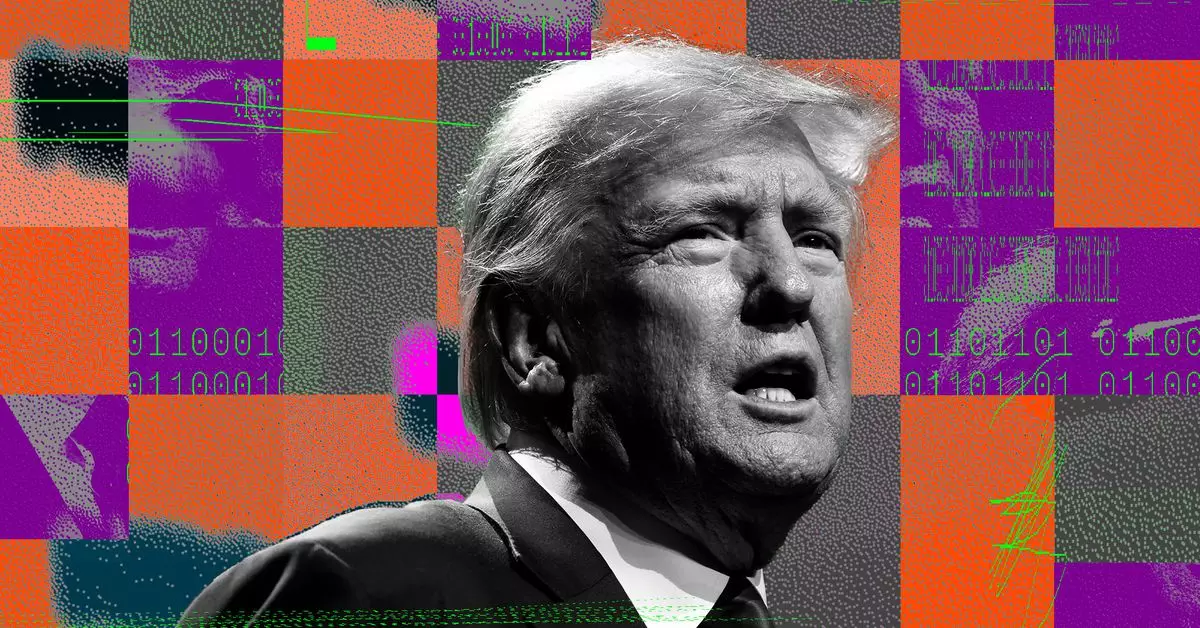In recent news headlines, the fate of TikTok—a popular social media platform known for its short-form videos—has drawn significant attention due to its tense relationship with the U.S. government. As legal battles continue to unfold, President-elect Donald Trump has signaled his intent to intervene, seeking Supreme Court permission to negotiate a deal that could prevent an impending ban on the platform, which has been under scrutiny primarily for national security concerns.
Trump’s amicus brief, filed to the Supreme Court, indicates a clear desire to tackle the looming crisis through political negotiations, claiming he possesses the necessary expertise and mandate to do so. His assertion that he alone can broker a deal to “save the platform” highlights the intertwining of technology and governance in contemporary America. Trump’s previous experiences negotiating in both business and political realms inflect his confidence, as he believes that a successful resolution could help protect what he sees as an essential medium for expression, especially for political messaging.
The debate around TikTok is not simply about a social media app; it’s about the broader implications of data privacy, national security, and freedom of speech in a digital age. The legal backdrop includes a potential ban justified under the guise of security risks associated with TikTok’s Chinese parent company, ByteDance. By examining the foundational arguments for both banning and retaining TikTok, we can better understand the complexities facing lawmakers and the judiciary as they balance national interests with individual rights.
The Supreme Court’s agreement to hear arguments related to the Congressional bill banning TikTok could be seen as a critical juncture in U.S. digital policy. The bill grants the president the discretion to delay enforcement if talks appear fruitful, emphasizing the government’s flexible approach to digital regulation. Trump’s request to postpone the decision until after his inauguration reflects a strategic maneuver, aiming to buy time to offer a compromise that might satisfy both security concerns and the demands of the digital marketplace.
While Trump’s brief lacks specific details on what a potential deal might entail, speculation suggests it would likely necessitate significant changes in TikTok’s ownership structure to allay apprehensions about data privacy. This could mean requiring ByteDance to divest parts of its control in favor of American ownership, which raises broader questions about the feasibility of such arrangements in a globalized digital economy.
Interestingly, Trump’s newfound support for TikTok marks a stark contrast from his previous hardline stance during his first term, when calls for an outright ban were frequent. This shift seems to align with the practicalities of political campaigning, particularly as Trump’s 2024 campaign has seen successful engagement with TikTok’s vast user base, which may have altered his perception of the platform’s utility. His recent meetings with TikTok’s CEO suggest a strategic pivot aimed at leveraging TikTok as a tool for mobilization and outreach rather than sharply opposing it.
However, the environment remains fraught with tension. Bipartisan pressure continues to mount for a more stringent enforcement of the ban, illustrated by petitions from prominent politicians and states advocating for the Supreme Court to dismiss TikTok’s challenges. This duality in political sentiment—support from Trump against calls for a stricter stance—captures the complicated dynamics of modern governance in relation to technology.
The ongoing saga of TikTok encapsulates a broader dilemma that will increasingly define political discourse as technology continues to evolve. The balance between securing national interests and maintaining an open platform for free expression is delicate, and Trump’s case serves as a microcosm of larger global discussions regarding technological sovereignty.
As the legal proceedings and negotiations evolve, they will likely set precedents not just for TikTok, but for how future administrations approach foreign-owned digital platforms that break into American society. Whether this will result in a framework for more collaborative rather than confrontational approaches to data privacy and social media remains to be seen.
The narrative surrounding TikTok is a vivid illustration of the intersections of technology, governance, and free speech, with implications that extend far beyond the app itself. As both public and political sentiment continues to swirl around this issue, it remains to be seen how the confluence of negotiation and regulation will shape the future of digital interactions in America.


Leave a Reply